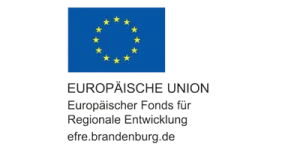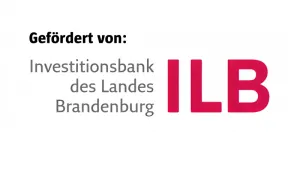Digital Cultural Heritage as an Economic Factor in Cultural Zourism KEW@T (2020)
KWE@T is an application-oriented research project for linking digital content from the field of cultural heritage and cultural tourism in the state of Brandenburg. The cooperation project between University of Applied Sciences Potsdam and Tourismus Marketing Brandenburg GmbH (TMB) is funded by the European Regional Development Fund (ERDF) and the State of Brandenburg.
The KEW@T research project, which is being carried out in cooperation with Tourismus Marketing Brandenburg GmbH, is about an expanded view of digital content from the field of cultural heritage for use in cultural tourism.
The focus of the research project is on the conception and prototypical development of a state-wide, technical and organisational infrastructure for linking cultural tourism offers in the Tourism Data Hub Brandenburg with digital content from cultural heritage institutions. These are now made available in web portals such as the German Digital Library ( DBB ) or Museum-digital. This approach is intended to improve the attractiveness of cultural tourism offers and thus strengthen the tourism cluster as a whole.
In order to strengthen the cooperation between culture and tourism, cultural institutions should be supported to become involved in regional economic cycles. To this end, the KEW@T project is creating a digital interface so that all cultural heritage institutions in the state of Brandenburg can be made visible and brought together digitally. In addition, they can thus provide additional information on cultural-historical objects for the new Tourism Data Hub of the state of Brandenburg.
From the point of view of the innovation strategy of the state of Brandenburg InnoBB plus, the consolidation of the content networks can on the one hand strengthen Brandenburg as a business location in the field of tourism. From the point of view of Brandenburg's cultural heritage, the integration of numerous smaller cultural heritage institutions in business-oriented tourism concepts can increase their visibility and also create a cultural-historical reference.
By including the digital content of the cultural heritage institutions in the Tourism Data Hub Brandenburg, there is also the possibility of integrating these institutions into the long-term open access / open data strategy of the state.
The ERDF poster for the project



Project management
Employees

